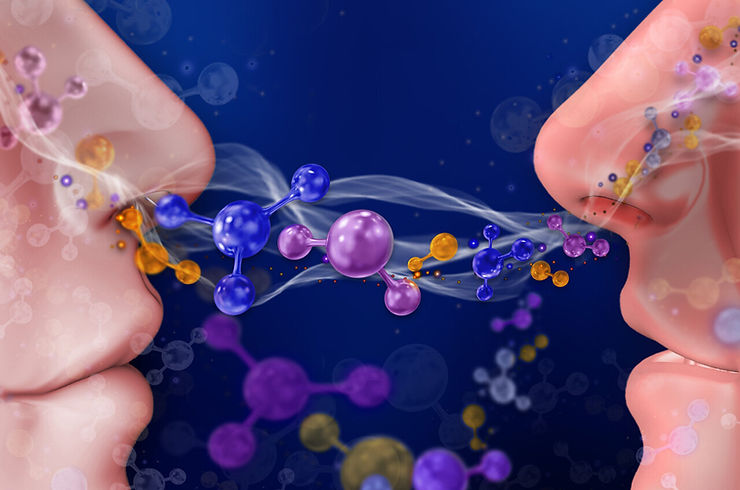By: Bowie Zeng
On Wednesday, a small study published in the journal Science Advances found that each person’s body odor is more similar to their best friend’s bodily fragrance than scientists might have predicted.
Inbal Ravreby is a graduate student in the lab of Noam Sobel, an olfaction researcher at the Weizmann Institute of Science in Israel. In Ravreby’s study, she first recruited twenty pairs of so-called “click friends,” who both characterized their friendship this way. Next, she put the pairs through a regimen that’s common in human-body-odor research: Ravreby told her subjects to: 1) Stop eating foods like onions and garlic—which affect body odor—for a few days. 2) Lay off the after-shave and deodorant. 3) Bathe with an unscented soap provided by the lab. And 4) Then put on a fresh, clean, lab-provided T-shirt and sleep in it so it gets good and smelly, before handing it over to the scientists for review.
Using an “electronic nose,” Ms. Ravreby and her colleagues analyzed the T-shirts’ odors. The researchers asked 25 additional volunteers to assess the T-shirts’ smells, as well. The researchers determined that pairs of friends’ odors are much more similar than the odors of pairs of strangers—people who have never met before.
However, eating similar diets and having similar lifestyles can also cause friends to smell alike. Scientists still don’t know whether pairs of strangers start out by having similar scents and then become friends as a result, or whether, after people become friends, they gradually begin to smell the same.
To probe this, the researchers asked 132 strangers, all of whom had first stunk up a formerly-clean T-shirt, to come into the scientists’ lab to play a mirroring game. Afterward, subjects filled out questionnaires telling whether they felt a connection with their mirroring partners.
Amazingly, 71 percent of the paired subjects both felt a connection. This finding suggests that inhaling an odor similar to our own generates good feelings.
Because of Covid, this is as far as the research went. Most people these days don’t want to get close enough to strangers to be able to smell them. Currently the team is looking into this question: If you modify subjects’ body odors, will subjects who’ve been made to smell similarly band together in teams of “intimate friends”?











